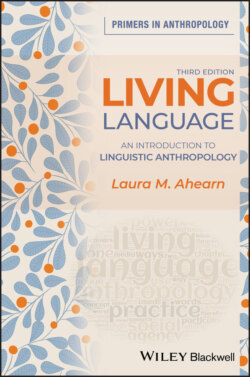Читать книгу Living Language - Laura M. Ahearn - Страница 23
Bonnie Urciuoli
ОглавлениеThe focus of Bonnie Urciuoli’s (1996) ethnography, Exposing Prejudice: Puerto Rican Experiences of Language, Race, and Class, is “language prejudice” – the ways in which Puerto Ricans in New York City’s Lower East Side experience, accept, or resist the judgments that they and others make about what constitutes “good” and “bad” language, whether Spanish, English, or a mixture. There is a “political economy” of language, Urciuoli argues, the workings of which she explains as follows: “[T]he ways in which people formulate, value, and use words, sounds, phrases, and codes are constituted through power relations: bureaucratic, economic, racial, and any combination thereof” (1996:4). The boundaries between Spanish and English can be clearly demarcated or fuzzy, depending on the context. When the socioeconomic class of the speakers is similar, as when Lower East Side Puerto Rican men are playing basketball with their English-speaking African American neighbors, shifting between Spanish and English (“code-switching”) occurs more fluidly and comfortably, for example, though the ways in which this happens differs according to gender, Urciuoli finds. In contrast, when there is a stark difference in socioeconomic class, race, or ethnicity between speakers, Urciuoli notes, the boundaries between Spanish and English are strictly enforced, so little if any code-switching occurs, for example, in interactions between Puerto Ricans and white social workers, even when those social workers may speak some Spanish. Language use is therefore an important part of unequal social and economic relations, Urciuoli maintains, as it both reflects and sometimes reinforces differences in status.
